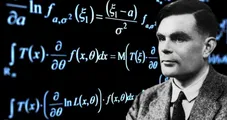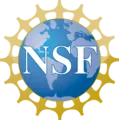Research Activities of Klaus Mainzer
In the 21st century, digitization constitutes a global challenge to humanity. Ever since data mining and big data, it has become obvious to the public how much our world is dominated by data and algorithms. But how computable is the world? Some believe that fast algorithms and massive data suffice to find solutions to problems in engineering and the economy. Even science faces a dramatic upheaval given that the enormous amounts of research data available today are no longer manageable without intelligent algorithms? What will be the role of scientific theory in the future? Opportunities and risks are often misjudged by the public, since the foundations and theories of algorithms are not taken into account. These are all deeply rooted in modern logic, mathematics, computer science, and philosophy. Klaus Mainzer therefore examines the foundations and consequences of digitization in several subprojects.
Foundations of Proofs and Computation

The research project “Foundations of Proofs and Computation” by Klaus Mainzer with Helmut Schwichtenberg (Department of Mathematics / LMU) and Peter Schuster (Institute of Mathematics / University of Leeds / Verona) is sponsored by the Udo Keller Foundation (Hamburg) and is linked to an annual international autumn school with logicians, mathematicians, computer scientists, and philosophers (e.g. from Germany, Great Britain, Italy, Japan, Austria). This research project focuses on the foundations of mathematical proof theory, algorithms, computer programs, and their philosophical roots: How can computer programs be developed on the basis of proofs (“proof mining”), which automatically guarantee the correctness and reliability of proofs or computer programs (“program extraction”)? In addition to practical consequences for securing complex data, fundamental epistemological issues are considered: computer programs are examples of constructive methods. Since the beginning of the previous century, philosophy and the foundations of mathematics have addressed the question whether or to what extent mathematics can be based on constructive methods and algorithms.
Data Analysis versus Theory

The research project “Data Analysis versus Theory” focuses on new dimensions in the collection and analysis of data due to digitalization as well as on the role of theorizing in science and technology. The project (with, among others, Wolfgang Pietsch / Department of Philosophy of Science) originates in several book publications on this topic (e.g. Klaus Mainzer, “The Calculation of the World. From the World Formula to Big Data”, Munich 2014). It is in cooperation with the “Münchner Kreis e.V.” (platform for designers and decision makers in the digital world), the scientific committee “Digitised Society” of the National Academy of Sciences (Leopoldina) and the thematic network of the Academy of Science and Engineering (acatech).
Sensor Technology and the Human Experience

The research project “Sensor Technology and the Human Experience”, among others with Wolfgang Porod (Department of Electrical Engineering / Notre Dame) and Laurel Riek (Computer Science / Reilly Center for Science, Technology, and Values / Notre Dame) is supported by the National Science Foundation of the United States (NSF). It deals with the human scientific foundations and implications of sensor technology, which is employed both in the Internet of Things and in robotics (Embodied Robotics). The project is accompanied by an annual international and interdisciplinary workshop.
Sustainable Risk Management

In the research project “Sustainable Risk Management” with Peter Wilderer (IAS / TUM), Ortwin Renn (IASS / Potsdam) and Michael Molls (Medicine / TUM), Klaus Mainzer addresses the topic “Sustainable Risk Management in Robotics”. The TUM Institute for Advanced Study (IAS) sponsors an annual workshop and the project is linked to the International Expert Group of Earth System Preservation (IESP). As an example of the need to address the issue of sustainable risk management, one could mention the conflicts regarding energy and water supplies in an age of global warming and climate change. The dismissive attitude towards innovative methods in agriculture, pharmacology, and medicine stands in contrast to the blind trust, with which SUVs and energy-hungry air conditioning have successfully entered the market. Partly, robotics is criticized as a disenfranchisement of the people, but the methods and products obtained by it are rather uncritically taken up, such as new tablet computers or smart phones. The project aims to result in an informed policy-making.